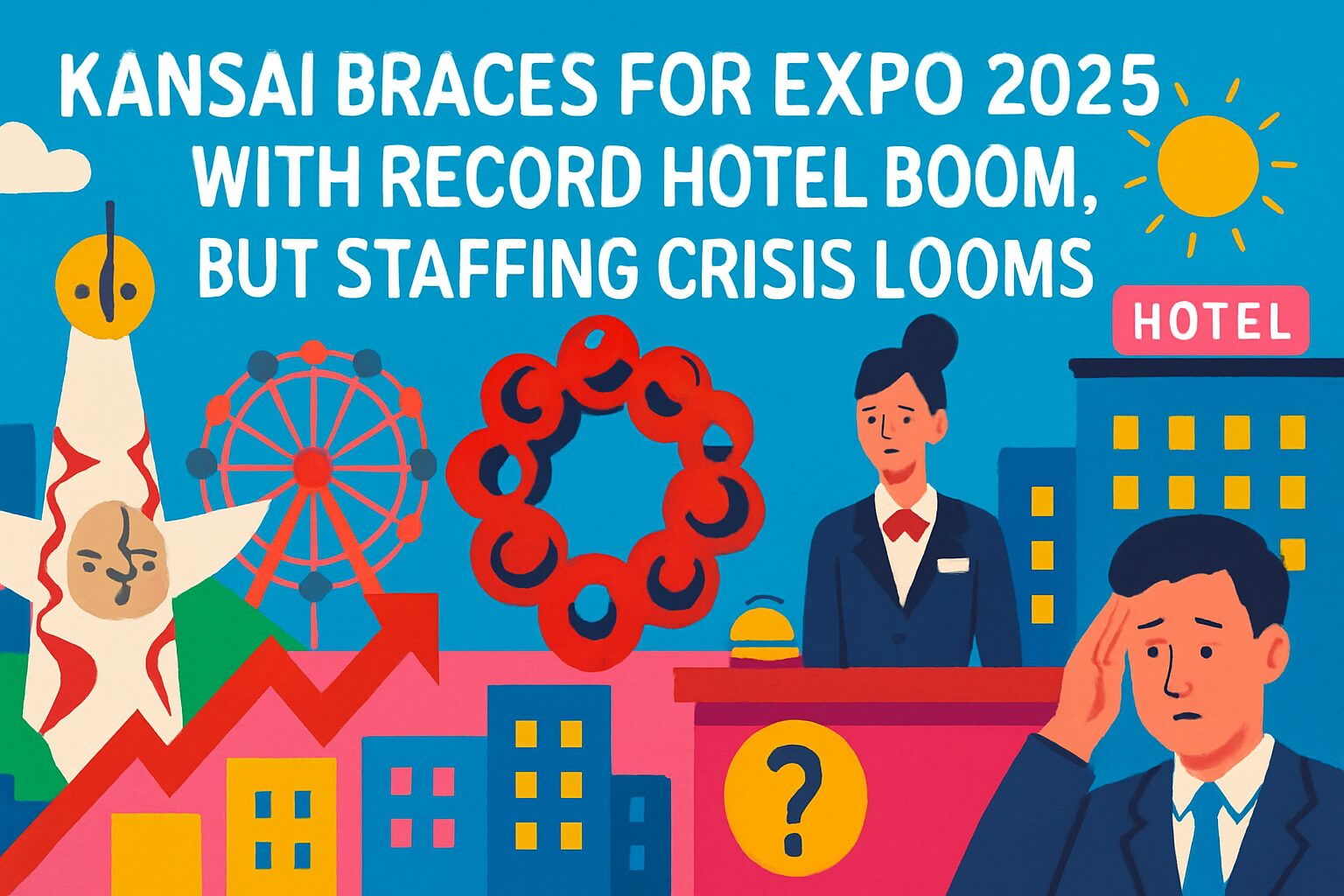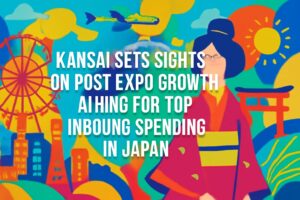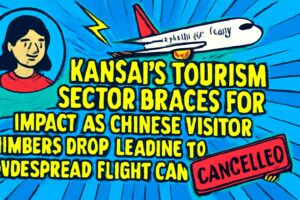The Kansai region, with Osaka at its heart, is on the verge of an unprecedented tourism boom, driven by the upcoming World Expo 2025. This has ignited a massive wave of hotel construction, promising a record number of rooms for incoming visitors. However, a severe and growing labor shortage threatens to undermine this expansion, raising critical questions about service quality and operational capacity just as the world turns its eyes to Osaka.
A Skyline Transformed: The Unprecedented Hotel Supply Surge
In anticipation of millions of visitors for the Expo and a sustained increase in post-pandemic tourism, the hospitality landscape in Kansai is undergoing a dramatic transformation. Major urban centers, particularly in Osaka, are experiencing a construction rush on a scale not seen in decades.
The Numbers Behind the Boom
Data from real estate and travel industry analysts paints a clear picture of this growth. Between 2023 and the opening of the Expo in 2025, Osaka alone is projected to add over 10,000 new hotel rooms to its inventory. This includes a diverse range of accommodations:
- Luxury Brands: International five-star brands like the Four Seasons Hotel Osaka are making their grand entrance, catering to high-end global travelers.
- Lifestyle and Boutique Hotels: A surge in unique, design-forward hotels is providing more personalized and culturally immersive experiences.
- Expanded Business and Budget Options: Established chains are expanding and new, efficient, limited-service hotels are opening to accommodate a wider range of budgets.
This expansion is fueled not only by the Expo but also by long-term strategic factors. The persistent weakness of the Japanese yen makes Japan an incredibly attractive and affordable destination for international tourists. Furthermore, the development of an Integrated Resort (IR) including a casino in Osaka is expected to ensure a steady stream of visitors long after the Expo concludes.
The Hidden Challenge: A Critical Labor Shortage
Beneath the glittering facade of new hotel towers lies a critical operational challenge: a severe shortage of staff. The hospitality industry across Japan is struggling to fill positions, and the problem is particularly acute in Kansai where the demand is exploding.
Recent surveys indicate that over 80% of hotels and ryokans in the region are facing a shortage of full-time employees. The issue is even more dire for part-time roles, which are essential for housekeeping, food and beverage services, and event support. The primary causes are multifaceted:
- An Aging Population: Japan’s demographic shift means a smaller pool of young workers entering the labor force.
- Post-Pandemic Career Changes: Many workers who left the hospitality industry during the COVID-19 pandemic have not returned, seeking more stable hours and different working conditions in other sectors.
- Intense Competition: With thousands of new rooms coming online simultaneously, hotels are competing for the same limited pool of talent, driving up recruitment costs.
This staffing crisis poses a direct threat to the success of the new hotel supply. A hotel cannot operate at full capacity without adequate staff for cleaning, check-ins, and guest services. The risk is that some new properties may be forced to delay their full opening or operate with a reduced number of available rooms, even if the physical construction is complete.
Impact on Travelers: What to Expect for Expo 2025
For travelers planning a trip to Osaka and the Kansai region, this dynamic situation presents both opportunities and potential challenges.
The Positives: Choice and Quality
The massive increase in supply means visitors will have an unparalleled choice of modern, new accommodations. The intense competition may also lead to higher standards and better facilities as hotels vie for guests. Outside of the absolute peak demand periods of the Expo, this oversupply could result in competitive pricing.
The Potential Downsides: Prices and Service
During the World Expo 2025, demand is expected to outstrip even this expanded supply, leading to high accommodation prices. Travelers should book well in advance to secure their preferred lodging.
More importantly, the labor shortage may impact the guest experience. Visitors might encounter:
- Reduced Service Levels: Services like daily housekeeping, room service, or 24-hour concierge support may be limited.
- Limited Amenities: Some in-hotel restaurants, bars, or spas may operate on reduced hours or may not open at all if they cannot be adequately staffed.
- Increased Automation: Expect to see more self-check-in/check-out kiosks and other automated services as hotels try to compensate for a lack of human staff.
The Industry’s Path Forward: Innovation and Strategy
The hospitality industry is actively seeking solutions to navigate this crisis. Key strategies include aggressive recruitment of foreign workers and students, offering more competitive wages and flexible working conditions, and investing heavily in labor-saving technology. Robots for cleaning, AI-powered concierge services, and streamlined digital platforms are no longer novelties but necessities for survival.
As Kansai prepares for its moment on the world stage, the race is on. The region has successfully built the infrastructure for a historic tourism boom. Now, the challenge is to build the human workforce needed to power it, ensuring that the visitor experience lives up to the promise of its gleaming new skyline.








